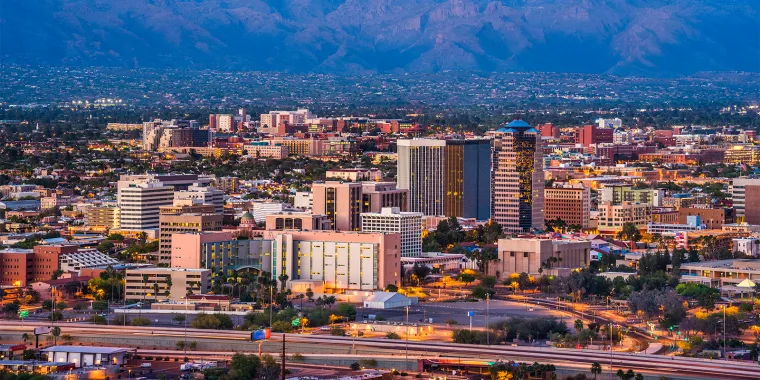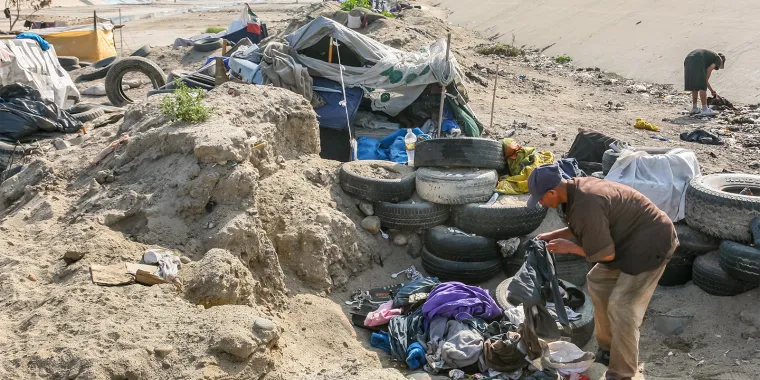The University of Arizona has an exciting opportunity to transform the way academic libraries disseminate scholarship and interact with the university and the public.
The Andrew W. Mellon Foundation awarded the University of Arizona a $750,000, three-year grant to integrate library services into data-intensive research to produce open access humanities scholarship from the U.S.-Mexico borderlands.
This grant will produce scholarship for academic and popular audiences free of cost.
The project, "Aligning Library Services with Data-Intensive Humanities Research: Modeling Support for Open Scholarship through Data Storytelling and Digital Publishing on the U.S.-Mexico Borderlands," will competitively award grants to faculty and research teams at University of Arizona. These teams will work on projects that utilize diverse services from University Libraries–the unit that houses campus libraries, Special Collections, and The University of Arizona Press. Shan Sutton, dean of University Libraries, is the principal investigator of the project, and the co-principal investigators are Megan Senseney, head of the Office of Digital Innovation and Stewardship, and Verónica Reyes-Escudero, head of Special Collections.
Sutton said that University Libraries are "uniquely positioned to make these advancements in how academic libraries can simultaneously integrate into faculty research workflows, advance borderlands research, and facilitate the use of open access to maximize global access to the resulting scholarship."
The University of Arizona is federally recognized as a Hispanic Serving Institution and a Research I institution–a university that engages in the highest levels of research activity–giving the university a unique opportunity to connect the surrounding community with research about that community.
"Our emphasis on research that directly involves members of diverse borderlands communities is reflective of the University of Arizona's commitment to being a national leader among Hispanic Serving Institutions," said Sutton.
The grant will enable the creation of data-intensive humanities research on the borderlands that will be facilitated by data focused library services like data management and curation, data science, and text and data mining.
University Libraries can also facilitate the use of geographic information systems (GIS)–a computer system for storing, analyzing, and displaying data related to positions on Earth’s surface, which will allow teams to gather data on natural phenomena. This will enable research questions that investigate how nature and the land have interacted with life in the borderlands over time.
Special Collections can offer the research teams access to rare books, literature, printed materials, manuscript collections, photographs, maps, and audio-visual materials from their distinctive archival collections on the U.S.-Mexico borderlands. These collections document the region's culture and history, from the colonial period to the present, and it is one of the nation's most extensive collections of archival materials and printed texts on the borderlands of the Southwest United States and the Northwest of Mexico. Research teams could use data mining techniques with the help of data specialists from University Libraries to analyze these materials, for example.
Since the research findings from this grant will be open access, University Libraries will provide another important service. Scholarly Communication, a service through the Office of Digital Innovation and Stewardship, offers the research teams open access publishing and policy support, along with digital collections consultation, and copyright support.
In addition to having open access to the research findings, it is also essential to the grant’s success that the scholarship is disseminated in a way that is palatable to the public. "The project's emphasis on open access through data storytelling and digital publishing will crucially ensure its impact across the United States, Mexico and around the world,” said Liesl Folks, senior vice president for academic affairs and provost.
Not only will the work produced under this grant be accessible to the public, but it will also be available to other research institutions. Opening research to other academic libraries makes the research important beyond the borderlands and in doing so, creates a model for what is possible in the future for academic libraries and data-focused library services, which will create a ripple effect of open access scholarship.
The type of data-driven research that has no barriers to access is beneficial because it advances our collective knowledge with scholarship about the borderlands, and it enriches our world more globally by promoting the importance of access for all to academic scholarship.





